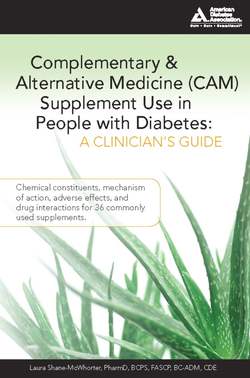Читать книгу Complementary and Alternative Medicine (CAM) Supplement Use in People with Diabetes: A Clinician's Guide - Laura Shane-McWhorter - Страница 26
На сайте Литреса книга снята с продажи.
Adverse Effects and Drug Interactions
ОглавлениеThe main side effects include diarrhea and gas, or flatulence, which subside after a few days of use. A caution for women of childbearing age is that fenugreek consumption may cause uterine contractions and thus cause problems with pregnancy.75 Hypersensitivity reactions have occurred, including rhinorrhea, wheezing, and fainting after inhalation of the seed powder. Wheezing and facial angioedema were reported in a patient with chronic asthma after application of a topical fenugreekpaste.76
A theoretical adverse effect is an allergic reaction in people with a peanut allergy, since peanuts are also members of the Leguminosae family.76 However, this reaction has never been reported. All of these side effects may occur in the infants of nursing mothers who use fenugreek, since the fenugreek may be secreted in the milk.
Fenugreek contains some coumarin constituents, and thus may increase the effects of anticoagulant, or blood-thinning, drugs such as warfarin (Coumadin) or herbs with blood-thinning activity (such as ginkgo biloba, garlic, or ginger). A case report of an interaction between warfarin and a product containing the digestive agent boldo in combination with fenugreek resulted in an increase in international normalized ratio (INR).80 Fenugreek may also enhance the activity of diabetes medications; thus, when used in combination with insulin or oral diabetes agents, the patient may experience hypoglycemia.
